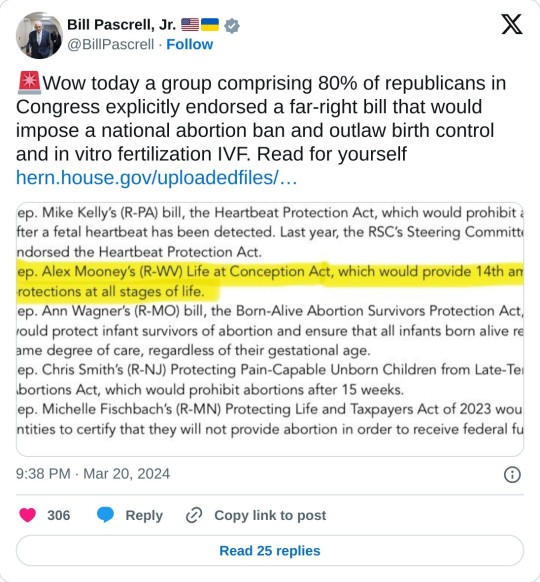#regulatory reform
Link
Excerpt from this Op-Ed by David Wallace-Wells in the New York Times:
The alliance that pushed the Inflation Reduction Act into law in August was always a somewhat fragile and ramshackle one: Green New Dealers and the coal-state senator Joe Manchin, carbon-capture geeks and environmental justice warriors, all herded together in the sort of big-tent play you get with a 50-50 Senate and one party functionally indifferent on climate.
One conspicuous cost of the compromise reached was a promise made by Senator Chuck Schumer to Manchin on what was vaguely called permitting reform: a catchall phrase referring to a whole host of efforts to cut red tape and ease the rollout of energy infrastructure. After weeks of speculation and intracoalitional debate, the text of the compromise was released on Sept. 21. By Sept. 27, the coalition had fallen apart, with Manchin somewhat abruptly pulling what had become known as the side deal from a must-pass budget resolution.
This was seemingly a victory for the progressive caucus, activists and environmental justice groups, which opposed the agreement as a fossil fuel handout, and another mark of a growing climate rift on the left in the aftermath of what was widely hailed as the most significant decarbonization bill passed into American law. (Nothing breaks a partnership like success, I guess.) But it also suggests an obvious next step for the left side of the now fractured climate coalition: its own alternative permitting reform bill, focused on building more electric transmission lines and streamlining regulatory approval for clean energy projects (without allowing for more fossil fuel infrastructure or the stampeding of frontline communities).
That’s because there are, I think, pretty strong climate arguments for permitting reform in principle: To more or less replace or rebuild the country’s whole energy infrastructure would require an enormous construction effort, ideally undertaken at warp speed. But Manchin’s particular version? Alongside reforms to promote more rapid build-out of the electricity grid, its major elements included modest changes to the National Environmental Policy Act, the environmental-review law whose impacts on energy infrastructure build-out are debated. Its review process slows projects enough, though, that even modest changes like these would accelerate things somewhat (and make it presumably harder to object to new projects on the basis of conservation values or environmental justice).
5 notes
·
View notes
Link
🥃 Bourbon lovers and legal eagles, unite! Dive into the heated vintage bourbon lawsuit between Justins’ House of Bourbon and Kentucky ABC. Discover the clash, the courtroom drama, and the crucial questions it raises for bourbon tradition and regulation. Don’t miss out on this compelling saga! 🍸 #VintageBourbonLawsuit
0 notes
Text
Treaty of the European Union and Basel III Reforms
Abstract: First I give a brief overview of Article 107 of the Treaty of the EU(TEU). Next, I give a summation of the issues which have come up for the EU in the last decade which have affected state aid, and the guarantees inherent in the Treaty of the EU
Abstract: First I give a brief overview of Article 107 of the Treaty of the EU(TEU). Next, I give a summation of the issues which have come up for the EU in the last decade which have affected state aid, and the guarantees inherent in the Treaty of the EU. These include the Greek Debt Crisis, as well as extraterritorial measures which have been taken an order to further enhance the quality, and…

View On WordPress
#Basel III Reforms#Basel IV#Europe and OECD#Financial Reforms#Financial Regulation#OECD#Regulatory Reform#Treaty of Paris
0 notes
Text
Last week, the Supreme Court’s far-right majority went home for the summer, but only after a stark reminder that they do not serve the people of this country — they serve Donald Trump and MAGA extremism. They serve wealthy corporations exploiting our communities. They serve whichever right-wing billionaire gives them the most gifts.
This term, the same extremist justices who overturned the constitutional right to abortion and ended affirmative action doubled down on the court’s legacy of protecting the interests of wealth and white supremacy.
These unelected justices have pulled off a judicial coup on behalf of fascists and billionaires. They have enabled Trump to evade accountability.
They have opened the door for the MAGA cult to destroy our rights through Project 2025. They have greenlit the criminalization of homelessness. They have left millions of people in states like Missouri vulnerable to bans on emergency abortions and other attacks on reproductive rights. And they have provided a road map for wealthy corporations to harm our planet and our communities by handcuffing the Environmental Protection Agency, the Food and Drug Administration and countless other agencies from regulating them.
The Republican-appointed justices are fighting a war on behalf of far-right extremists against the people of this country, and they are just getting started. Congress has a choice to make: reform the court or bear witness to the death of democracy and the destruction of the communities it should protect.
[...]
Court reform is personal for me — not just as a member of the House Judiciary and Oversight committees, but as a survivor of gun violence, as someone who has had an abortion, as the daughter of a former union meat cutter, and as a congresswoman representing a community that has been systematically denied the right to vote. And it should be personal to everyone who cares about our democracy and our freedoms. The gavel’s fall should signify justice served, not lives destroyed. Our lives and our communities are worse off because of this unchecked, extremist Supreme Court. The time for reform is now.
Congress must remove lawless justices through impeachment — that’s why this week my colleagues and I introduced articles of impeachment against Justices Clarence Thomas and Samuel Alito over their multiple ethical conflicts and failures to disclose. Congress must also pass legislation that imposes a binding code of ethics for every justice. We must expand the Court to 13 seats by passing the Judiciary Act, which I proudly co-lead. Congress must enact term limits for the justices. Finally, we must strip the Supreme Court of its power to invalidate federal laws that protect our fundamental rights.
Rep. Cori Bush (D-MO) for MSNBC.com on why the Supreme Court needs significant reforms to dilute the radical right-wing MAGA Majority influence, such as expansion of the court to 13, a binding code of ethics, and term limits (07.11.2024).
Rep. Cori Bush (D-MO) wrote a solid editorial on MSNBC.com calling for judicial reforms to neuter the MAGA Majority on the court, such as expansion to 13, term limits, and a binding ethics code. Hopefully the people in MO-01 vote her again.
#Cori Bush#SCOTUS Reform#SCOTUS#Court Reform#Courts#MSNBC.com#Opinion#SCOTUS Expansion#SCOTUS Ethics Crisis#Alito Impeachment#Thomas Impeachment#Judiciary Act#Term Limits#Regulatory Powers
5 notes
·
View notes
Text
India’s Path to a $10 Trillion Economy: Unlocking Growth Through Financial Inclusion, Innovation, and Sustainability 🇮🇳💡🌱
India’s ambitious goal of becoming a $10 trillion economy by 2032 reflects its immense potential and aspirations. I view this target as both challenging and achievable, provided that strategic improvements are made across multiple sectors. Let’s explore the key areas that demand attention and assess their potential impact on India’s economic trajectory.
1. Financial Inclusion: The Catalyst for…
#AI in Finance#Business Growth#clean tech#Digital India#Ease of doing business#Economic Growth#Economic Vision 2032#Education Reform#Financial Inclusion#Foreign Investment#Global Powerhouse#Green Economy#Human Capital#India Rising#Infrastructure Development#Innovation#Logistics Efficiency#Make in India#Maufacturing Growth#Productivity Boost#Regulatory Reforms#Skill Development#Sustainable Growth#Tech Adoption
0 notes
Text
pochettino saying he hasn't spoken to the chelsea owners in months is kinda going back to what i said after the 5-0 loss to arsenal, boehly is not the correct man to be owning a football club. if ur no longer speaking to the manager yet ur keeping him on then what's the point? ur clearly not happy hence no contact so sack him, mind u it's too late in the season to do anything but still
also chelsea's failures aren't just down to the mess higher ups, pochettino is a shit manager too u can't have a team that heavily reliant on one player (palmer) n play the way they did the other day
#chelsea's case is very interesting bc a) boehly technically has zero disqualifying factors#for the ownership n directors test bc he has the money n no unspent convictions#but also at the same time his character is not one that's fit and proper to own a club#n that's what my diss was about is that in english football#the regulations are just far too relaxed there's not enough governance/structure#the regulatory bodies don't do their job properly#n u have idiots like boehly like glazers etc etc who come in n ruin these clubs#yanited is more of a complex case in that the club is ruined#both w outdated training ground n stadium#but at the same time they can spend a fuck tonne in transfer windows#yet they are over £1bn in debt#but unlike other clubs they can survive purely bc of the profit that we make through tv revenue#ticket sale sponsors etc etc#also this topic is really interesting#like u don't realise how fucked football is in england#until u do ur own digging#reform needs to happen asap
0 notes
Text
Nigeria's Epic Economic Makeover: From 99th to 75th Place!
Nigeria's Epic Economic Transformation: From 99th to 75th Place! Discover the Journey. #technology #policyintellectuals #Africa #innovation #education
500% Trade Growth in Africa: Nigeria’s Grand Plan!
In today’s fast-paced, interconnected world, understanding and improving economic growth isn’t just a matter of economics. It’s a complex web that encompasses the natural sciences of information, networks, and complexity. This web is aptly captured by the Economic Complexity Theory, a framework that helps us explore the intricacies of economic…

View On WordPress
#Africa#Digital Workforce#Economic complexity theory#Economic Growth#Exports#Malaysia#Nigeria#Regulatory Reforms#Trade
0 notes
Text
Wednesday Feature: CMS Targeting 400 Hospices for Administrative Action
Usually I try to add some “light and levity” to my Wednesday features as the content on this site is pretty heavy health policy and economics, regulatory in nature, etc. In my work, my usual Wednesday messages internally are “fun” – a bit of Hump Day humor or whimsy. By title of this post, readers will see the deviation.
In June I wrote a piece on the likelihood of upcoming regulatory actions by…
View On WordPress
#Administrative Action#CMS#Compliance#Fraud#Happy Hump Day#Hospice#Industry Outlook#Investigation#Management#Medicare#Payment#Policy#Reform#Regulations#Regulatory#Trends#Wednesday Feature
0 notes
Text
20 African Countries with the Most High Net Worth Individuals: See Where Your Country Ranks
20 African Countries with the Most High Net Worth Individuals
Discover which African countries have the highest number of high net worth individuals, ranked from first to last, and learn about the factors that contribute to their wealth.
As Africa’s economy continues to grow, an increasing number of high net worth individuals (HNWIs) are emerging across the continent. These individuals have created significant wealth through various industries, including…

View On WordPress
#AFRICA#Business#entrepreneurship#finance#high net worth individuals#investment#investment facilitation#investment protection#natural resources#political stability#regulatory reforms#tax incentives#the economy#trade agreements#wealth
0 notes
Text
Politics and Business: Navigating Instability in Eastern Europe
by Eastern European Institute for Trade

Eastern European nations face a myriad of challenges as they strive to balance political instability with economic development. This volatile landscape poses significant obstacles for businesses, both local and foreign, as they navigate a complex web of regulations, corruption, and political risk (Pop-Eleches & Tucker, 2011; EBRD, 2020). In this article, we delve into the causes of instability, the implications for businesses operating in the region, and potential strategies for managing the risks associated with political turbulence.
Political instability in Eastern Europe can be attributed to a multitude of factors, including weak governance, high levels of corruption, and ongoing tensions between European Union (EU) aspirations and the influence of Russia (Pop-Eleches & Tucker, 2011; Börzel & Lebanidze, 2017). This instability creates an uncertain business environment, marked by policy unpredictability, regulatory inconsistencies, and heightened risks for investors (EBRD, 2020).
The implications of political instability for businesses operating in Eastern Europe are manifold. Investment decisions may be hindered by a lack of transparency and predictability in regulatory frameworks, while companies face increased operating costs due to corruption and bureaucratic inefficiencies (Slinko et al., 2005; EBRD, 2020). Additionally, geopolitical tensions and the potential for conflict create security risks, further complicating business operations (Börzel & Lebanidze, 2017).
To successfully navigate the complexities of the Eastern European business environment, companies must adopt a proactive approach to managing political risk. This entails conducting thorough due diligence, engaging in strategic planning to anticipate potential scenarios, and fostering strong relationships with local stakeholders (Pop-Eleches & Tucker, 2011; KPMG, 2016). Moreover, businesses should consider diversifying their operations and investments to mitigate the impact of regional instability (KPMG, 2016).
International actors, such as the EU and the International Monetary Fund (IMF), also have a critical role to play in promoting stability and economic growth in Eastern Europe. By providing financial assistance and technical expertise, these organizations can support the implementation of reforms aimed at strengthening governance, combating corruption, and fostering a more predictable business environment (Pop-Eleches & Tucker, 2011; EBRD, 2020).
In conclusion, political instability in Eastern Europe poses significant challenges for businesses. To navigate this uncertain landscape, companies must adopt a proactive approach to managing risk, while international actors should support regional efforts to improve governance and promote stability. By working together, businesses and policymakers can foster a more predictable and conducive environment for economic growth and investment in the region.
References:
Börzel, T. A., & Lebanidze, B. (2017). European Neighborhood Policy at the Crossroads: Evaluating the Past to Shape the Future. European Policy Analysis, 3(1), 1–19.
EBRD (2020). Transition Report 2020–21: The State Strikes Back. European Bank for Reconstruction and Development.
KPMG (2016). Navigating an uncertain landscape: The changing world of risk. KPMG International.
Pop-Eleches, G., & Tucker, J. A. (2011). After the Colored Revolutions: Regime Change and Political Instability in Eastern Europe. Journal of Democracy, 22(3), 49–63.
Slinko, I., Yakovlev, E., & Zhuravskaya, E. (2005). Laws for Sale: Evidence from Russia. American Law and Economics Review, 7(1), 284–318.
Read more at Eastern European Institute for Trade.
#EEIT#Eastern European Institute for Trade#Politics and business#Eastern Europe#Instability#Political risk#Geopolitical tensions#Economic development#Weak governance#Corruption#European Union (EU)#Russia#Investment decisions#Regulatory frameworks#Due diligence#Strategic planning#Stakeholder engagement#Diversification#International Monetary Fund (IMF)#Reforms#Business environment#Economic growth
0 notes
Text
The Communist Party’s main theoretical journal has laid out a new ideological framework for the financial system that emphasizes the primacy of China’s top leader and Marxist principles. [...]
The Communist Party issued a detailed ideological statement on Friday in Qiushi, the party’s main official theoretical journal, that made clear that it expected banks, pension funds, insurers and other financial organizations in China to follow Marxist principles [...]
The Qiushi paper, which was being closely studied by bankers and economists in China, could cut against efforts by Beijing to show that the economy is open to investment even as it places a heavier hand on business.
Barry Naughton, an economist at the University of California at San Diego who has long studied China’s transition to a market economy, said that the document signaled that the finance sector would be subject to ever-tighter oversight and forced to serve government policies more actively.
“The financial sector will not be expected to push for market-oriented reforms or even necessarily maximize profit,” he said. “As a program for the financial sector, it is ambitious, disappointing and somewhat ominous.”[...]
“Politics will for sure further dictate China’s finance, effectively moving China even closer to how it was before the reforms started in 1978,” said Chen Zhiwu, a finance professor at the University of Hong Kong.
Some of the policy targets set forth in the essay would not be unusual as regulatory goals in the West. For example, it calls for banks to emphasize financial services for the “real economy,” which the party has long interpreted to include ample financing for the country’s industrial base.
But it also calls for a strong role in finance for [...] Marxist ideology generally. That follows a pattern that emerged for other sectors during the national congress of China’s Communist Party a year ago, but has been less apparent in finance — until now. [...]
Moody’s, the credit rating agency, announced on Tuesday that it was lowering its credit outlook for the Chinese government to negative. It had previously assigned a stable outlook for the country’s credit rating, which remains at A1, near the top of the ratings scale. [...]
Qiushi is the main journal providing pronouncements on China’s current ideology, which is known as Xi Jinping Thought on Socialism with Chinese Characteristics for a New Era. The statement on Friday said that Mr. Xi’s speech to the financial conference, “is a valuable ideological crystallization formed by our party’s unremitting exploration of the path of financial development with Chinese characteristics.” [...]
“Politics affects all important areas, and economic or financial issues are themselves political issues,” he said. Indeed, Communist Party control over finance comes up repeatedly in the Qiushi statement. “We must unswervingly adhere to the centralized and unified leadership of the party Central Committee over financial work, uphold and strengthen the party’s overall leadership over financial work,” it said.
5 Dec 23
253 notes
·
View notes
Note
Reverse unpopular opinion: Joe Biden.
This one's kind of a gimme, the problem with Biden is not that there's nothing good to say about him, it's that there's so much bad
It's unclear to me exactly what his admin is doing that is so much better than Obama etc, but my impression is that Biden appointees are displaying an unusual amount of technocratic competence - it feels like we've gotten a whole lot of "common sense" regulatory reforms in the past few years (nuking noncompetes and overdraft fees, crackdowns on spam calls, free tax filing initiatives with the IRS, etc)
71 notes
·
View notes
Text
The Best News of Last Week - March 27, 2023
🐢 - Why did the 90-year-old tortoise become a father? Because he finally came out of his shell!
1. New Mexico governor signs bill ending juvenile life sentences without parole

New Mexico Governor Michelle Lujan Grisham has signed a bill into law that prevents juvenile offenders from receiving life sentences without eligibility for parole. The bill, known as the No Life Sentences for Juveniles Act, allows offenders who committed crimes under the age of 18 and received life sentences to be eligible for parole hearings 15 to 25 years into their sentences.
This legislation also applies to juveniles found guilty of first-degree murder, even if they were tried as adults. The move puts New Mexico in a group of at least 24 other states and Washington, DC, that have enacted similar measures following a 2021 Supreme Court ruling.
2. Promising pill completely eliminates cancer in 18 leukaemia patients

An experimental pill called revumenib has shown promise in curing terminal leukemia patients who were not responding to treatment in a long-awaited clinical trial in the United States. The drug works by inhibiting a specific protein called menin, which is involved in the machinery that gets hijacked by leukemia cells and causes normal blood cells to turn into cancerous ones.
The pill targets the most common mutation in acute myeloid leukemia, a gene called NPM1, and a less common fusion called KMT2A. The US Food and Drug Administration granted revumenib "breakthrough therapy designation" to fast-track its development and regulatory review based on the promising results of the trial.
3. Spain passes law against domestic animal abuse

Spain has passed a new law on animal welfare, accompanied by a reform of the penal code that increases prison sentences for those mistreating animals. The law will make compulsory training for dog owners, and will prohibit them from leaving their dogs alone for more than 24 hours.
It also mandates the sterilisation of cats, with exceptions for farms, and increases the penalties for mistreatment of animals to up to two years in prison, or three years in the event of aggravating circumstances.
4. Bravery medals for women who raced into 'rough, crazy' surf to save drowning girls

Elyse Partridge (far left) and Bella Broadley (far right) raced into dangerous surf to save Chloe and Violet from drowning.(ABC North Coast: Hannah Ross)
Bella Broadley and Elyse Partridge saved two 11-year-old girls from drowning at Angels Beach near Ballina, an unpatrolled beach in Australia. The younger girls, Chloe and Violet, became trapped in a rip and overwhelmed by waves and the current. Bella and Elyse jumped into action, using an esky lid as a flotation device to help them swim to the girls. Elyse helped Chloe back to shore while Bella swam further out to help Violet.
Elyse and Bella were on Wednesday named on the Governor General's Australian Bravery Decorations Honours List, which recognised 66 Australians for acts of bravery.
5. Almost every cat featured in viral Tik Tok posted by Kansas City animal shelter adopted
Let's find homes for the rest
youtube
6. A 90-year-old tortoise named Mr. Pickles just became a father of 3. It's a big 'dill'

These critically endangered tortoises are native to Madagascar and have seen their numbers decline due to over-collection for illegal sales on the black market. Captive breeding programs have helped produce new radiated tortoises, but the species still faces extinction in the wild.
That's why the arrival of these hatchlings, born to 90-year-old Mr. Pickles and his 53-year-old partner Mrs. Pickles, is such great news. Mr. Pickles is considered the most genetically valuable radiated tortoise in the Association of Zoos and Aquariums' Species Survival Plan, and the births represent a significant contribution to the survival of the species.
7. EU strikes ‘ground-breaking’ deal to cut maritime emissions

The European Parliament and EU ministers have agreed on a new law to cut emissions in the maritime sector. The law aims to reduce ship emissions by 2% as of 2025 and 80% as of 2050, covering greenhouse gas, methane, and nitrous oxide emissions.
The European Commission will review the law in 2028 and will decide whether to place carbon-cutting requirements on smaller ships. The agreement will also require containerships and passenger ships docking at major EU ports to plug into the on-shore power supply as of 2030. Penalties collected from those that fail to meet the targets will be allocated to projects focused on decarbonising the maritime sector.
- - - -
That's it for this week :)
This newsletter will always be free. If you liked this post you can support me with a small kofi donation:
Buy me a coffee ❤️
Also don’t forget to share this post with your friends.
468 notes
·
View notes
Text
This summer, the Supreme Court is poised to overturn a cornerstone of administrative law known as "Chevron deference." Established in the 1984 case Chevron v. NRDC, this doctrine instructs courts to defer to federal agencies' interpretations of laws where the underlying statute is ambiguous (or even silent). Absent Chevron, Congress could be forced to be much more specific in how it crafts legislation, delegates authority, and conducts regulatory oversight. If it refuses to adapt, agencies could be incapacitated and service delivery could stall.
Ironically, the effort to dismantle Chevron and return responsibility to the legislative branch may happen amid a historically unproductive and divided Congress. Briefing and oral arguments for Loper Bright Enterprises v. Raimondo, the case challenging the 1984 decision, raised questions about Congress' preparedness. And outside the Court, commentators fear Congress may be too broken to fix.
As close watchers of efforts to modernize Congress over the past decade, we don't share that pessimism. But a lot will have to change. In the 40 years since Chevron was decided, Congress has seen worsening dysfunction and atrophy. Staffing on House committees has shrunk by 41 percent. Critical support offices like the Congressional Research Service and the Government Accountability Office have downsized by more than 25 percent. Meanwhile, the complexity of the federal bureaucracy has increased immensely.
While Chevron is often described as diminishing congressional authority, that's not entirely accurate. Rather than stealing authority from Congress, the ruling created the political conditions for Congress to be deliberately ambiguous, and punt contentious policy details to the executive branch. This change was then followed by a hollowing out of committee expertise, increased dependence on lobbyists, centralization of power in leadership, and more gridlock. As attorney Paul Clement argued in Loper Bright v. Raimondo:
Chevron is a big factor in contributing to gridlock. And let me give you a concrete example. I would think that the uniquely 21st-century phenomenon of cryptocurrency would have been addressed by Congress, and I certainly would have thought that would have been true in the wake of the FTX debacle. But it hasn't happened. Why hasn't it happened? Because there's an agency head out there that thinks that he already has the authority to address this uniquely 21st-century problem with a couple of statutes passed in the 1930s.
A post-Chevron world could force Congress to increase its internal capacity, invest in expertise, overhaul its processes, better monitor implementation, and respond more quickly. If not, depending where SCOTUS comes down, things could start to break.
Massive institutional reforms in Congress are rare and usually come in response to a crisis or scandal, whether post-Nixon budget changes, post-Jack Abramoff lobbying reform, or post-9/11 security changes (including the embrace of email after Anthrax attacks).
More recently, we saw continuity upgrades accelerated during the pandemic, and Congress is now responding with remarkable haste to responsibly adopt AI tools. Since 2019, a bipartisan modernization effort in the House has produced and implemented over 100 reforms, creating a virtuous cycle in which members, staff, and outside experts work together to improve the institution.
Post-Chevron, these efforts need to be dramatically expanded. This will require not just incremental adjustments but a comprehensive upgrade in resources, staffing, and operations. It will require a major increase to the legislative branch's budget even as the U.S. faces a difficult fiscal outlook. Indeed, while Congress is a mere 0.1 percent of federal expenditures, it has long been a salient and politically expedient place for politicians to make cuts.
One key area where Congress will need to improve is its regulatory monitoring and oversight. AEI scholars Kevin Kosar and Philip Wallach proposed a vehicle for this change: a new "Congressional Regulation Office" (CRO). The CRO would undertake critical tasks such as conducting benefit-cost analyses of significant agency rules, performing retrospective reviews to assess the effectiveness and impact of existing regulations, and identifying redundancies or conflicts across the regulatory landscape. Another approach would be to build this function inside of an existing agency, such as the Government Accountability Office or the Congressional Budget Office.
In addition to building a new regulatory support function, Congress will need to bolster its staff capacity and technology resources, with a particular focus on committees with substantial regulatory jurisdiction, as well as support agencies.
Unfortunately, to date, we are unaware of any major hearings or other efforts in Congress to address this challenge. Meanwhile, court watchers see that an upheaval to Chevron is coming. Regardless of where you come down on the merits of the case, it's crucial to get ready. While most will be focused on the November election throughout 2024, some of the biggest changes coming to Congress may soon be decided by nine votes.
40 notes
·
View notes
Text

President Biden set to announce support for major Supreme Court reforms
Tyler Pager and Michael Scherer at WaPo:
President Biden is finalizing plans to endorse major changes to the Supreme Court in the coming weeks, including proposals for legislation to establish term limits for the justices and an enforceable ethics code, according to two people briefed on the plans.
He is also weighing whether to call for a constitutional amendment to eliminate broad immunity for presidents and other constitutional officeholders, the people said, speaking on the condition of anonymity to discuss private deliberations.
The announcement would mark a major shift for Biden, a former chair of the Senate Judiciary Committee, who has long resisted calls to make substantive changes to the high court. The potential changes come in response to growing outrage among his supporters about recent ethics scandals surrounding Justice Clarence Thomas and decisions by the new court majority that have changed legal precedent on issues including abortion and federal regulatory powers.
Biden previewed the shift in a Zoom call Saturday with the Congressional Progressive Caucus.
[...]
Term limits and an ethics code would be subject to congressional approval, which would face long odds in the Republican-controlled House and a slim Democratic majority in the Senate. Under current rules, passage in the Senate would require 60 votes. A constitutional amendment requires even more hurdles, including two-thirds support of both chambers, or by a convention of two-thirds of the states, and then approval by three-fourths of state legislatures.
The details of Biden’s considered policies have not been disclosed. A White House spokesperson declined to comment.
[...]
Eight Democratic senators have co-sponsored a bill that would establish 18-year terms for Supreme Court justices, with a new justice appointed every two years. The nine most recently appointed justices would sit for appellate jurisdiction cases, while others would be able to hear original jurisdiction cases or to step in as a substitute if one of the most recent nine is conflicted or cannot hear a case for another reason.
Good News! President Joe Biden set to endorse major reforms to SCOTUS, such as term limits and an ethics code with actual teeth.
#SCOTUS#SCOTUS Reform#Joe Biden#Courts#Judiciary#Term Limits#Ethics#SCOTUS Ethics Crisis#Congressional Progressive Caucus#Biden Administration
358 notes
·
View notes
Text
By Jessica Corbett
Common Dreams
March 20, 2024
"Trump has tried to walk back his support for Social Security and Medicare cuts," said the head of Social Security Works. "This budget is one of many reasons why no one should believe him."
Defenders of Social Security and Medicare on Wednesday swiftly criticized the biggest caucus of Republicans in the U.S. House of Representatives for putting out a budget proposal for fiscal year 2025 that takes aim at the crucial programs.
The 180-page "Fiscal Sanity to Save America" plan from the Republican Study Committee (RSC) follows the release of proposals from Democratic President Joe Biden and U.S. House Budget Committee Chair Jodey Arrington (R-Texas)—who is leading the fight to create a fiscal commission for the programs that critics call a "death panel" designed to force through cuts.
The RSC document features full sections on "Saving Medicare" and "Preventing Biden's Cuts to Social Security," which both push back on the president's recent comments calling out Republican attacks on the programs that serve seniors.

The caucus plan promotes premium support for Medicare Advantage plans administered by private health insurance providers as well as changes to payments made to teaching hospitals. For Social Security, the proposal calls for tying retirement age to rising life expectancy and cutting benefits for younger workers over certain income levels, including phasing out auxiliary benefits.
The document also claims that the caucus budget "would promote trust fund solvency by increasing payroll tax revenues through pro-growth tax reform, pro-growth energy policy that lifts wages, work requirements that move Americans from welfare to work, and regulatory reforms that increase economic growth."
In a lengthy Wednesday statement blasting the RSC budget, Social Security Works president Nancy Altman pointed out that last week, former President Donald Trump, the presumptive Republican nominee to face Biden in the November election, "toldCNBC that 'there's a lot you can do' to cut Social Security."
"Everyone who cares about the future of these vital earned benefits should vote accordingly in November."
"Now, congressional Republicans are confirming the party's support for cuts—to the tune of $1.5 trillion. They are also laying out some of those cuts," Altman said. "This budget would raise the retirement age, in line with prominent Republican influencer Ben Shapiro's recent comments that 'retirement itself is a stupid idea.' It would make annual cost-of-living increases stingier, so that benefits erode over time. It would slash middle-class benefits."
"Perhaps most insultingly, given the Republicans' claim to be the party of 'family values,' this budget would eliminate Social Security spousal benefits, as well as children's benefits, for middle-class families. That would punish women who take time out of the workforce to care for children and other loved ones," she continued. "This coming from a party that wants to take away women's reproductive rights!"
The caucus, chaired by Rep. Kevin Hern (R-Okla.), included 285 bills and initiatives from 192 members in its budget plan—among them are various proposals threatening abortion care, birth control, and in vitro fertilization (IVF) nationwide.

"The RSC budget would also take away Medicare's new power to negotiate lower prices on prescription drugs, putting more money into the pockets of the GOP's Big Pharma donors," Altman warned. "And it accelerates the privatization of Medicare, handing it over to private insurance companies who have a long history of ripping off the government and delaying and denying care to those who need it."
"In recent days, Trump has tried to walk back his support for Social Security and Medicare cuts," she noted. "This budget is one of many reasons why no one should believe him. The Republican Party is the party of cutting Social Security and Medicare, while giving tax handouts to billionaires."
"The Democratic Party is the party of expanding Social Security and Medicare, paid for by requiring the ultrawealthy to contribute their fair share," Altman added. "Everyone who cares about the future of these vital earned benefits should vote accordingly in November."
Biden campaign communications director Michael Tyler also targeted the Republican presidential candidate while slamming the RSC plan, saying that "Donald Trump's MAGA allies in Congress made it clear today: A vote for Trump is a vote to make the MAGA 2025 agenda of cutting Social Security, ripping away access to IVF, and banning abortion nationwide a hellish reality."
"While Trump and his allies push forward their extreme agenda, the American people are watching," Tyler added, suggesting that the RSC proposal will help motivate voters to give Biden and Vice President Kamala Harris four more years in the White House.
86 notes
·
View notes